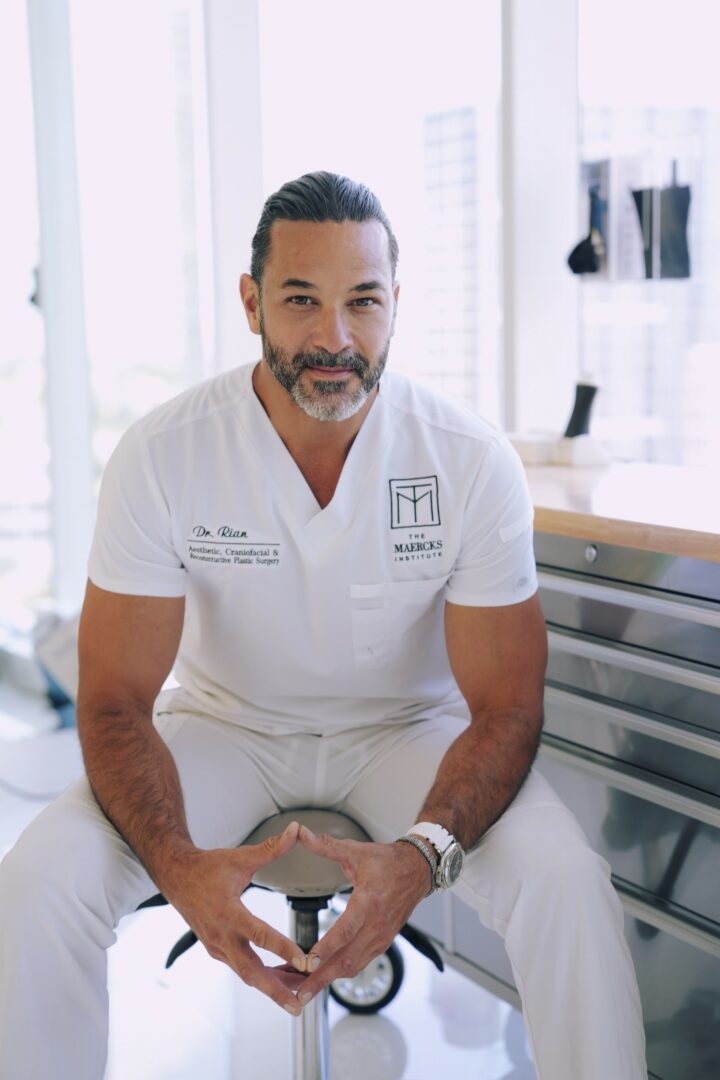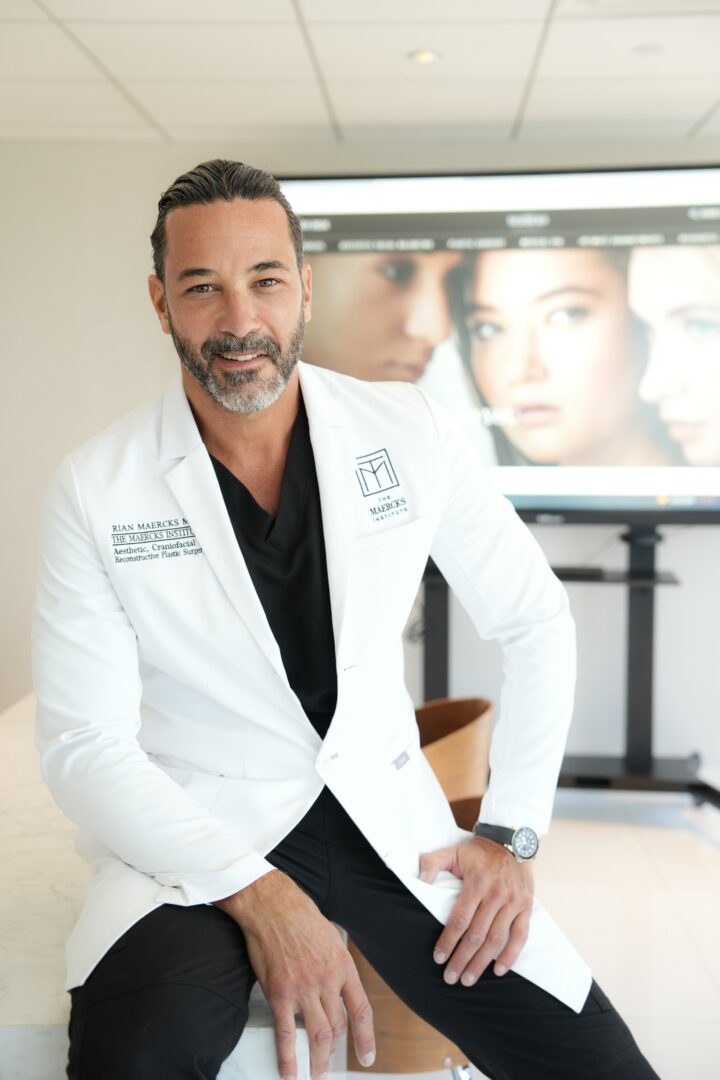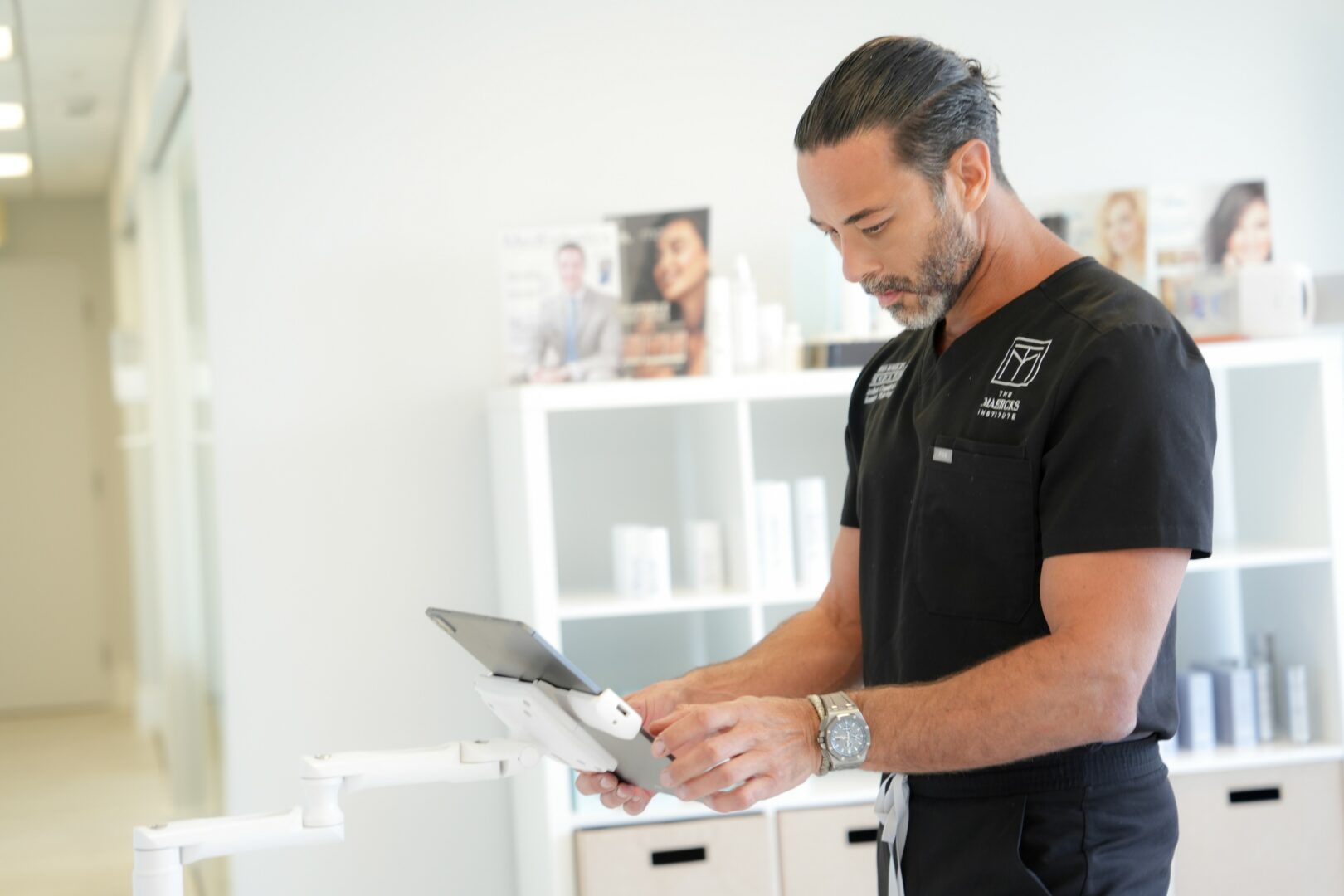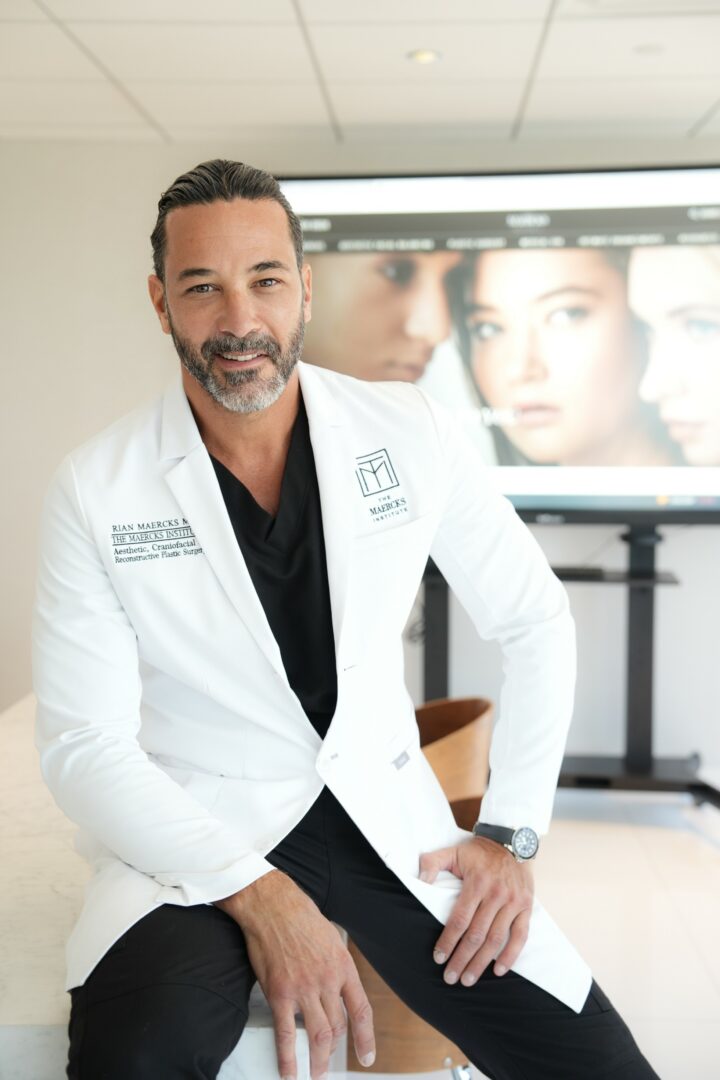We recently had the chance to connect with Rian Maercks and have shared our conversation below.
Good morning Rian, we’re so happy to have you here with us and we’d love to explore your story and how you think about life and legacy and so much more. So let’s start with a question we often ask: What do the first 90 minutes of your day look like?
The first 90 minutes of my day are sacred they’re what I call my “me time.” It’s the only part of the day where I can truly protect uninterrupted deep work and creative flow before my focus shifts entirely to my patients, my team, and the practice. I usually wake up two to three hours before any obligation. That window is for high-intensity movement a HIIT workout or a cold plunge followed by reading, journaling, or getting through important emails and strategic planning.
Those quiet hours are when my mind is at its freest and most creative. It’s when new ideas emerge concepts for surgical innovation, device development, or even ways to enhance the patient journey. By allowing myself that space each morning to move, think, and create, I show up as a sharper surgeon, a better leader, and frankly, a more centered human being for the rest of the day. the rest of my day is so intense there is not enough uninterrupted time for deep work for productive introspection
Can you briefly introduce yourself and share what makes you or your brand unique?
I’m Dr. Rian Maercks a plastic surgeon with the unique background of being an artist, and philosopher by training, and the founder of The Maercks Institute in Miami and the Hamptons. My practice is really the embodiment of my life’s philosophy and carrying my core values through everything I do keeps me full of life energy.
My practice is really built on the understanding that beauty is far more than skin deep. It’s actually a philosophical pursuit I dove into in my early college years exploring the connection between beauty and ethics. I often say that beauty is the most foundational manifestation of Plato’s Form of the Good, meaning that true beauty draws us out of ourselves, makes us better people, and connects us to something higher. When we focus on creating timeless, authentic beauty in art, in surgery, or in life everything just gets better.
Beauty, like good, like art, should never be contrived or obvious. Everything we do at The Maercks Institute is designed around natural, timeless enhancement and the patient’s authentic expression of self.
What makes my work unique is that I’ve spent my career rethinking the dogma of plastic surgery, challenging the “tight,” overdone look that’s become too common in aesthetic medicine. Through techniques I’ve developed like The MAERCKS Lift™, KEDGE Suspension™, Cold-Subfascial Breast Augmentation, and FEMMA-S, I’ve built a system of rejuvenation that restores the natural structures of beauty rather than distorting them. The result is a “subtle but profound” transformation, one that looks effortless and feels like the individual, only renewed.
At its heart, my practice is an experience, not just a surgery. I believe in creating an environment that’s as refined and thoughtful as the outcomes we deliver, where patients can feel cared for, inspired, and seen.
Right now, I’m especially focused on advancing anesthesia-free facelift and rejuvenation techniques, a breakthrough unique to my practice that allows patients to enjoy a deep-plane, structural lift under local anesthesia, with zero social downtime, zero pain and zero risks and sequelae of anesthesia.. It’s incredibly gratifying to see patients walk out not just looking years younger, but feeling energized and empowered the same day.
Thanks for sharing that. Would love to go back in time and hear about how your past might have impacted who you are today. What’s a moment that really shaped how you see the world?
The moment that really shaped how I see the world came after years of studying fine arts and philosophy, then plunging headfirst into the world of medicine and surgery. What struck me most wasn’t just the brilliance of the field, but how often its leadership was driven less by truth or curiosity and more by ego and power. I began to realize that many of the so-called authorities weren’t necessarily the best thinkers or the most compassionate surgeons they were simply the ones who controlled the literature, the podiums, and the narrative.
That realization was jarring. It felt dangerous, because when dogma replaces curiosity, progress dies. I saw how generations of surgeons were being trained to repeat ideas that may have started as someone’s ego project sometimes even to the detriment of patients. When I entered plastic surgery, that realization deepened. I found myself questioning almost everything about aesthetic surgery why we lifted the way we did, where we placed volume, even how we defined “beauty.”
It was during that time often in tension with powerful and egocentric mentors that I began to diverge in my thinking. My reconstructive training gave me a foundation in anatomy and structure, and from there I started reimagining how aesthetics could be performedin harmony with the human form rather than against it. Those challenging encounters with arrogance and dogma became the fuel for my purpose: to strip away ego and re-center surgery on truth, beauty, and integrity.
People suggested I take easier paths to “fake” being a plastic surgeon through easier routes like cosmetic dermatology or ENT but that was never an option for me. I wanted to do it the right way, the hard way, the honest way. That decision, and the disillusionment that preceded it, became the defining pivot in my life. It taught me that following truth, even when it’s uncomfortable, is the only way to create something lasting, meaningful, and genuinely good.
Was there ever a time you almost gave up?
I almost gave up the first week of medical school. I had just started at Duke one of the most competitive programs in the country and they ran this brutal integrated curriculum where you essentially compressed two years of science into one. My classmates were all biochem or neuroscience majors, and I was a philosophy and fine arts major. I hadn’t even taken biochemistry before.
That first week, we had a lecture on G-protein signaling. It’s actually simple in hindsight, but the professor a brilliant lab director was talking about advanced protein interactions and molecular folding that sounded like a foreign language to me. I remember sitting there, completely lost, looking at diagrams and arrows that meant nothing, and thinking, I’m not smart enough for this. I went to lunch with my classmates, my head down, on the verge of tears, genuinely believing I was going to quit.
That night, I opened the handout we were actually responsible for and realized the testable content was a basic schematic just a few moving parts and binding sites. That experience taught me humility, but also gave me the confidence to dive into more challenges from philosophy to plastic surgery and learn it from the ground up.
Next, maybe we can discuss some of your foundational philosophies and views? Is the public version of you the real you?
Yes and no. The public version of me is absolutely real but it’s the professional version of me. It’s the Dr. Maercks people see when I’m representing my art, my patients, and my brand. That version reflects excellence, aesthetics, and a certain lifestyle, because that’s part of what The Maercks Institute represents an experience of beauty and refinement.
But it’s not the whole of me. Sometimes people assume from social media or magazine features that I’m purely driven by luxury or image. In reality, I’m incredibly grounded. I love simplicity nature, time with close friends, cooking, traveling quietly. I think a lot about meaning, philosophy, and how to live a good life. My work is high-aesthetic and high-performance, but at the core, I’m just a curious, thoughtful human being who loves creating beauty that uplifts others.
So yes, the public version of me is true but it’s curated through the lens of my professional purpose. The deeper side, the one driven by art, philosophy, and connection, is what fuels it all.
Thank you so much for all of your openness so far. Maybe we can close with a future oriented question. What are you doing today that won’t pay off for 7–10 years?
Right now, I’m very focused on legacy work. I’ve built The Maercks Institute into something that reflects a very particular philosophy one that treats aesthetics not as vanity, but as a path to authenticity and well-being. I know that what I’m doing today may not fully pay off for seven to ten years, but I’m investing intentionally in the future of this brand, the culture, and the meaning behind it.
My goal is to create something enduring a kind of “school of thought” in plastic surgery that stays true to natural beauty, human structure, and ethical practice. I want to attract and mentor other surgeons who resonate with that vision, who can carry forward the techniques, refinements, and philosophy we’ve cultivated here.
It’s not just about growing a practice it’s about safeguarding an approach to beauty that’s thoughtful, honest, and deeply human. If, ten years from now, there are surgeons around the world practicing with that same ethos, then I’ll feel I’ve really succeeded.
Contact Info:
- Website: https://www.themaercksinstitute.com
- Instagram: https://www.instagram.com/themaercksinstitute/?hl=en
- Linkedin: https://www.linkedin.com/company/the-maercks-institute
- Facebook: https://www.facebook.com/RianMaercksMD/
- Youtube: https://www.youtube.com/@TheMaercksInstitute



so if you or someone you know deserves recognition please let us know here.




